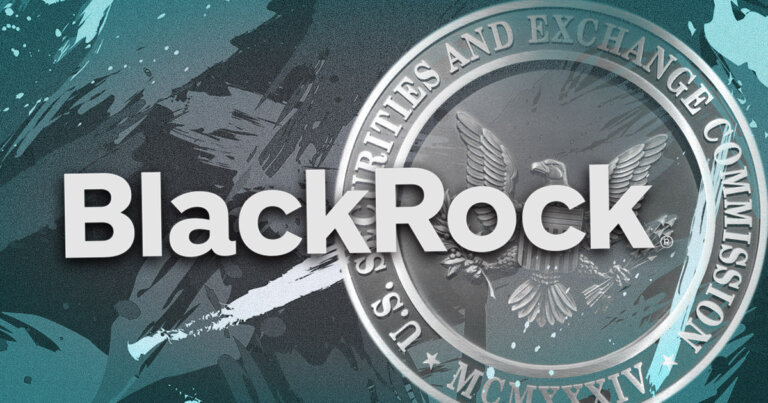 Amid Bitcoin ETF rumors, BlackRock stumbles paying $2.5M in SEC charges for investment misreporting other fund
Amid Bitcoin ETF rumors, BlackRock stumbles paying $2.5M in SEC charges for investment misreporting other fund Amid Bitcoin ETF rumors, BlackRock stumbles paying $2.5M in SEC charges for investment misreporting other fund
The global asset manager BlackRock accused by SEC of inaccurately reporting substantial investments.

Cover art/illustration via CryptoSlate. Image includes combined content which may include AI-generated content.
Amid a bullish market for Bitcoin and anticipation of a spot exchange-traded fund (ETF) on the horizon, BlackRock, one of the world’s leading investment advisers, has been charged by the Securities and Exchange Commission (SEC) for failing to report significant investments made by a publicly traded fund accurately it advised.
According to the SEC, BlackRock has agreed to pay a $2.5 million penalty to settle the charges without admitting or denying the findings.
The SEC’s order, released on Oct. 24, finds that between 2015 and 2019, BlackRock Multi-Sector Income Trust (BIT) mischaracterized its substantial investments in Aviron Group, LLC. Although Aviron, which developed print and advertising plans for one to two films per year, played a considerable role in the fund’s portfolio, BlackRock reportedly described the company as a “Diversified Financial Services” entity in several of BIT’s annual and semi-annual reports.
Moreover, BlackRock allegedly claimed that Aviron paid a higher interest rate than what was the case. The discrepancies were identified by BlackRock in 2019, and the investment in Aviron was accurately reported in subsequent documents. Salvatore Massa and Brian Fitzpatrick conducted the SEC’s investigation under the supervision of Andrew Dean and Corey Schuster, all with the Enforcement Division’s Asset Management Unit.
Andrew Dean, Co-Chief of the Enforcement Division’s Asset Management Unit, stated.
“Retail and institutional investors rely on accurate disclosures of the companies that make up a closed-end or mutual fund’s portfolio to evaluate a current or prospective investment in the fund.”
He further emphasized that investment advisers are obligated to provide this crucial information.
Despite the charges, BlackRock remains in the spotlight for a different reason. As CryptoSlate reported, the global asset manager is rumored to be considering seeding its iShares spot Bitcoin ETF. Although not yet confirmed by the company, such a move could provide further impetus to the already buoyant Bitcoin market.
This disclosure scandal highlights the importance of transparency in investment advising, especially as institutional interest in the crypto space continues to grow. While the legal issue may be a setback for BlackRock, it is unlikely to dampen the overall enthusiasm for Bitcoin and the potential launch of a spot ETF, which many hope will open new avenues for institutional involvement in the crypto landscape.





























































